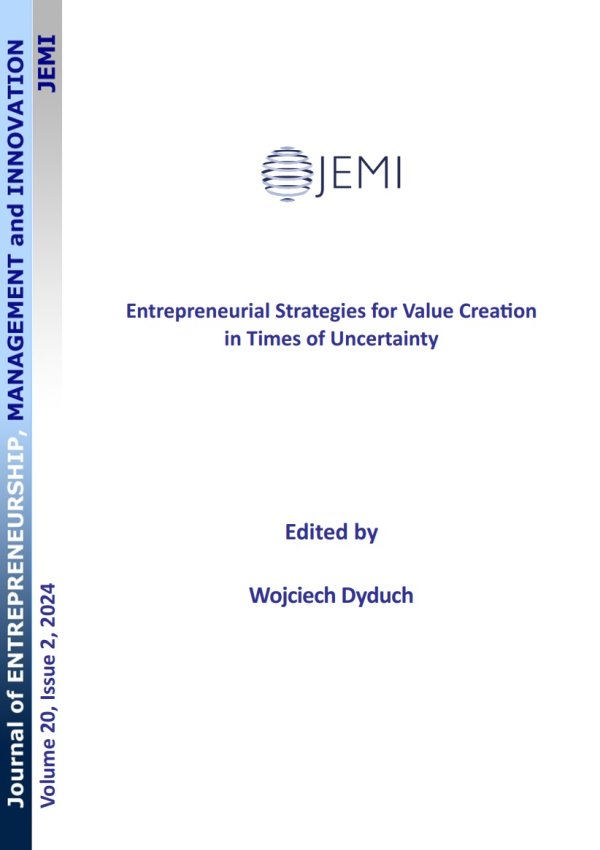Marco Pini, Senior Economist, Centro Studi delle Camere di Commercio Guglielmo Tagliacarne, P.O. Box Piazza Sallustio, 9, 00187, Rome, Italy, e-mail: This email address is being protected from spambots. You need JavaScript enabled to view it. 
Grzegorz Tchorek, Assistant Professor, Faculty of Management, University of Warsaw, P.O. Box 1/3 Szturmowa St., 02-678 Warsaw, Poland, e-mail: This email address is being protected from spambots. You need JavaScript enabled to view it. 
Abstract
PURPOSE: The paper analyses the determinants of exporting from a cross-country perspective, comparing Italy and Poland. It focuses on three objectives: i) investigating if age and size influence the firm’s probability to export; ii) if there are differences between family and non-family management; iii) if and how non-family management positively moderates the relationship between age, size, and the firm’s probability to export. METHODOLOGY: Microeconometric analysis using probit regressions on two surveys carried out in Italy and Poland on representative samples of manufacturing SMEs (1,100 for Italy and 680 for Poland). We control for several factors, such as innovation, geographical location, economic sector, and banks relationship. FINDINGS: In both countries, the larger firms have a higher probability to export, with a higher significant effect in Italy than in Poland. Business experience proves to be a factor affecting the likelihood of exporting only in Italy (in a positive sense: older firms are more likely to export) and not in Poland. External (non-family) management is a driver for the internationalization of family-owned firms, especially for younger firms in Italy and for smaller firms in Poland. All these findings are confirmed by robustness check analyses on the subsample of family-owned firms. IMPLICATIONS: i) the role of corporate governance can differ between countries with reference to a firm’s competitiveness; ii) favoring management openness to external managers for family-owned firms; iii) small firms require greater support in encouraging exporting behavior; iv) the need to consider jointly the issues of innovation, internationalization and corporate governance modes (familynon-family management) in the agenda of the firm’s competitiveness. ORIGINALITY AND VALUE: The paper contributes to the literature on the determinants of exporting by simultaneously studying some firm’s characteristics related to size and age with others related to corporate governance, which are usually addressed separately. Furthermore, this paper tries to fill a gap concerning a lack of cross-country studies focusing on European countries other than those more advanced.
Keywords: internationalization, family firms, innovation, SME, export determinants, non-family management






